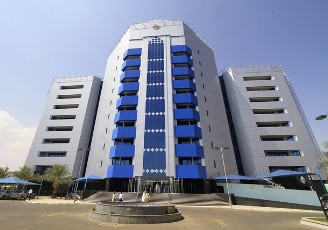Four Sudanese banks at risk of insolvency: official
November 18, 2014 (KHARTOUM) – The governor the Central Bank of Sudan (CBoS), Abdel-Rahman Hassan Abdel-Rahman, has announced that profits of commercial banks have declined by 1.2% over the past two years, warning that four banks are now at risk of insolvency.

He stressed that CBoS is undertaking efforts to reduce the default rate to 6% and reduce inflation rate to 20.9%.
The CBoS governor went on to say Sudan’s foreign debt amounted to $43.8 billion by the end of 2013, noting that 13% of the debt is owed to regional and international financial institutions, 32% to Paris Club, 37% to other Paris Club non-member states, 13% to international commercial banks while the remaining 5% is owed to foreign importers.
He also reiterated that Sudan’s external debt deprived the country from concessional borrowing.
Abdel-Rahman pointed out that the principal debt was $17.7 billion, which constitutes 40% of the current debt, adding that even though economic reform policies implemented since September 2013 had contributed to decreasing budget deficit, it had the undesirable effect of causing price increases.
Double-digit inflation has been one of the most visible features of the Sudanese economy in recent years.
To makes matters worse, the government phased out subsidies twice in 2012 and 2013 on petroleum and food products, triggering demonstrations that were swiftly quelled.
Khartoum inherited the entire external debt that existed prior to the secession of the south. The two countries have yet to agree on how to split up the debt.
Both sides decided to reach out to creditors to obtain debt relief and if that fails will sit down to see how it can be divided using the “zero option”.
AWB FINANCIAL POSITION
Meanwhile, it was reported that Sudan Animal Wealth Bank (AWB), whose board of directors is chaired by the famous businessman and MP from the ruling National Congress Party (NCP), Jamal al-Wali, is under financial duress.
On Monday, al-Wali appeared before the parliament to testify about the financial position of the AWB and respond to allegations of financial impropriety within the bank.
He stressed that the AWB’s non-performing loans ratio has not exceeded 3%, expressing readiness to undergo an audit.
Al-Wali said the bank had recovered 100 billion pounds (SDG) in prior debts, saying that bad loans went down from 185 billion pounds (SDG) to 85 billion.
(ST)
